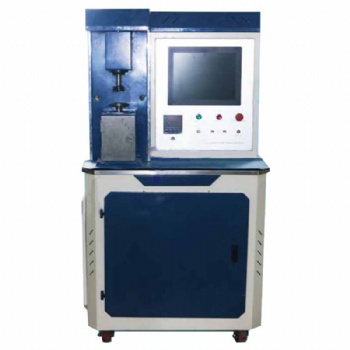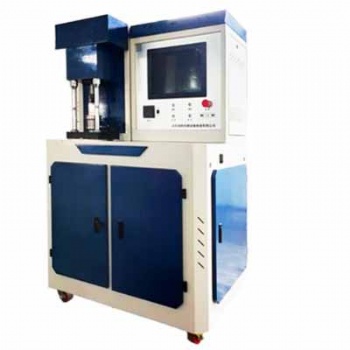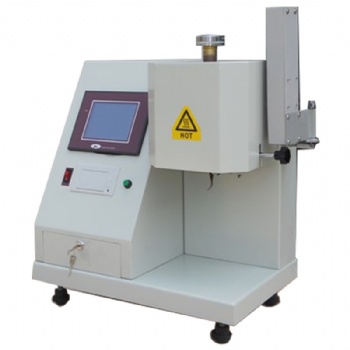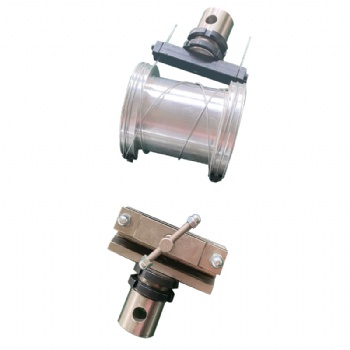News
A Complete Guide to Steel Strand Tensile Testing Machines
A Complete Guide to Steel Strand Tensile Testing Machines
Introduction to Steel Strand Tensile Testing Machines
The steel strand tensile testing machine is specialized devices designed to evaluate the tensile strength, elongation, and other mechanical properties of steel strands. These strands are typically composed of multiple steel wires twisted together, and they are commonly used in construction projects like bridges, buildings, and pre-stressed concrete structures. Understanding the mechanical properties of steel strands is crucial for ensuring the safety, reliability, and longevity of such structures.
Tensile testing of steel strands involves stretching the specimen until it fails, providing essential information about the material’s behavior under load. These machines help manufacturers and engineers adhere to stringent quality standards and ensure the mechanical integrity of their products.
Key Features of Steel Strand Tensile Testing Machines
Steel strand tensile testing machines are specifically designed to handle the unique requirements of steel strands, providing features that make testing efficient and accurate:
High Load Capacity: These machines can handle the high tensile loads required to test steel strands, typically ranging from 200 kN to 3000 kN, depending on the model.
Gripping Mechanism: Specialized grips or wedge clamps are used to securely hold the steel strand specimens during testing, preventing slippage and ensuring accurate results.
Hydraulic or Servo Control: Many machines use advanced hydraulic or servo-controlled systems for precise control of the loading rate and force application.
Digital Display and Data Acquisition: Equipped with digital displays, data acquisition systems, and software to capture test data such as maximum load, elongation, and break point.
Testing Speed Control: Adjustable testing speed to comply with various international standards, allowing tests to be conducted at the correct rate for accurate results.
Extensometers: Some machines are equipped with extensometers to measure strain accurately, providing detailed elongation and deformation data.
Applications of Steel Strand Tensile Testing Machines
Steel strand tensile testing machines are essential in several industries due to their versatile applications:
1.Construction Industry: Ensuring that steel strands meet the required strength for pre-stressed concrete structures, bridges, and buildings.
2.Quality Control: Manufacturers use these machines for quality control to guarantee the mechanical properties of their steel strands meet the necessary standards.
3.Research and Development: Engineers and researchers use tensile testing to explore new materials, coatings, and treatments for steel strands.
4.Compliance Testing: Conducting tests to comply with national and international standards, ensuring that the products meet safety and performance criteria.
Test Procedure for Steel Strands
Performing a tensile test on a steel strand requires following a precise procedure to ensure accurate and reliable results:
1.Specimen Preparation:
Cut the steel strand to the specified length according to the relevant standard.
Ensure that the ends are free from damage, deformation, or irregularities.
2.Mounting the Specimen:
Secure the specimen in the grips of the tensile testing machine, making sure it is centered and properly aligned.
Use wedge-type or hydraulic grips specifically designed for steel strands to avoid slippage during the test.
3.Setting Test Parameters:
Input the desired test parameters, including loading rate, target force, and elongation limits, following the guidelines of the test standard.
Adjust the test speed and pre-load settings to comply with the selected standard.
4.Conduct the Test:
Start the test, and the machine will gradually increase the load on the steel strand until it breaks.
Monitor the process, observing the behavior of the strand, such as elongation, yielding, and fracture.
5.Data Collection and Analysis:
The digital system will automatically capture data, including maximum load, elongation, yield strength, and breaking point.
Save and analyze the test data to determine if the steel strand meets the required specifications.
6.Post-Test Inspection:
Examine the fractured surface of the specimen to understand the failure mode.
Record any anomalies or irregularities in the fracture pattern for further analysis.
Test Standards for Steel Strand Tensile Testing
There are several international and national standards that guide tensile testing of steel strands. These standards specify the testing procedure, parameters, and requirements:
ASTM A416: Standard Specification for Steel Strand, Uncoated Seven-Wire for Prestressed Concrete.
EN 10138: European standards for pre-stressing steel, including the testing of steel strands.
ISO 15630-3: Specifies test methods for steel strands used in concrete, including tensile strength, elongation, and relaxation tests.
JIS G3536: Japanese standard for steel wire strands for pre-stressed concrete.
GB/T 5224: Chinese standard for uncoated steel strand used for pre-stressed concrete.
Advantages of Using Steel Strand Tensile Testing Machines
Steel strand tensile testing machines offer numerous benefits that make them an indispensable part of the construction and steel manufacturing industries:
Accurate Results: These machines provide precise measurement of tensile strength, elongation, and breaking load, ensuring compliance with safety standards.
Reliability: Built with high-quality materials, these machines are designed to deliver consistent results over time, even under high load conditions.
Versatility: Suitable for a wide range of steel strand sizes, types, and configurations, including uncoated, galvanized, and epoxy-coated strands.
Ease of Use: Modern machines often feature intuitive software and digital displays, making operation straightforward, even for new users.
Cost Efficiency: By identifying material weaknesses early, manufacturers can reduce material waste and improve production processes.
Choosing the Right Steel Strand Tensile Testing Machine
When selecting a tensile testing machine for steel strands, consider the following factors:
1.Load Capacity: Choose a machine with the appropriate load capacity to handle the steel strands you intend to test.
2.Gripping Mechanism: Make sure the machine has suitable grips for the types of strands you work with to prevent slippage.
3.Data Acquisition System: Look for a machine with advanced data collection and analysis software for accurate results.
4.Standards Compliance: Ensure the machine meets the test standards relevant to your application (e.g., ASTM, ISO, EN).
5.Durability and Build Quality: Opt for a machine built with robust materials that can withstand heavy-duty testing without frequent maintenance.
Conclusion
Steel strand tensile testing machines play a critical role in ensuring the quality, safety, and durability of construction materials. Whether used for quality control in manufacturing or research and development of new materials, these machines provide essential insights into the mechanical properties of steel strands. Proper selection and use of these machines are crucial for achieving reliable test results that meet industry standards, making them a valuable asset in any lab or production facility.
Investing in a high-quality steel strand tensile testing machine helps manufacturers and engineers build safer and more resilient structures, contributing to the advancement of construction and engineering projects worldwide.
100 ton tensile testing machine, 100 ton tensile stress testing equipment, 100 ton tensile stress tester, 100 ton tensile strength test device
Categories
Contact Us
- +86-18615632092
- wtbequipment@hotmail.com
- sophie-tester
- +86-18615632092




 售前客服
售前客服